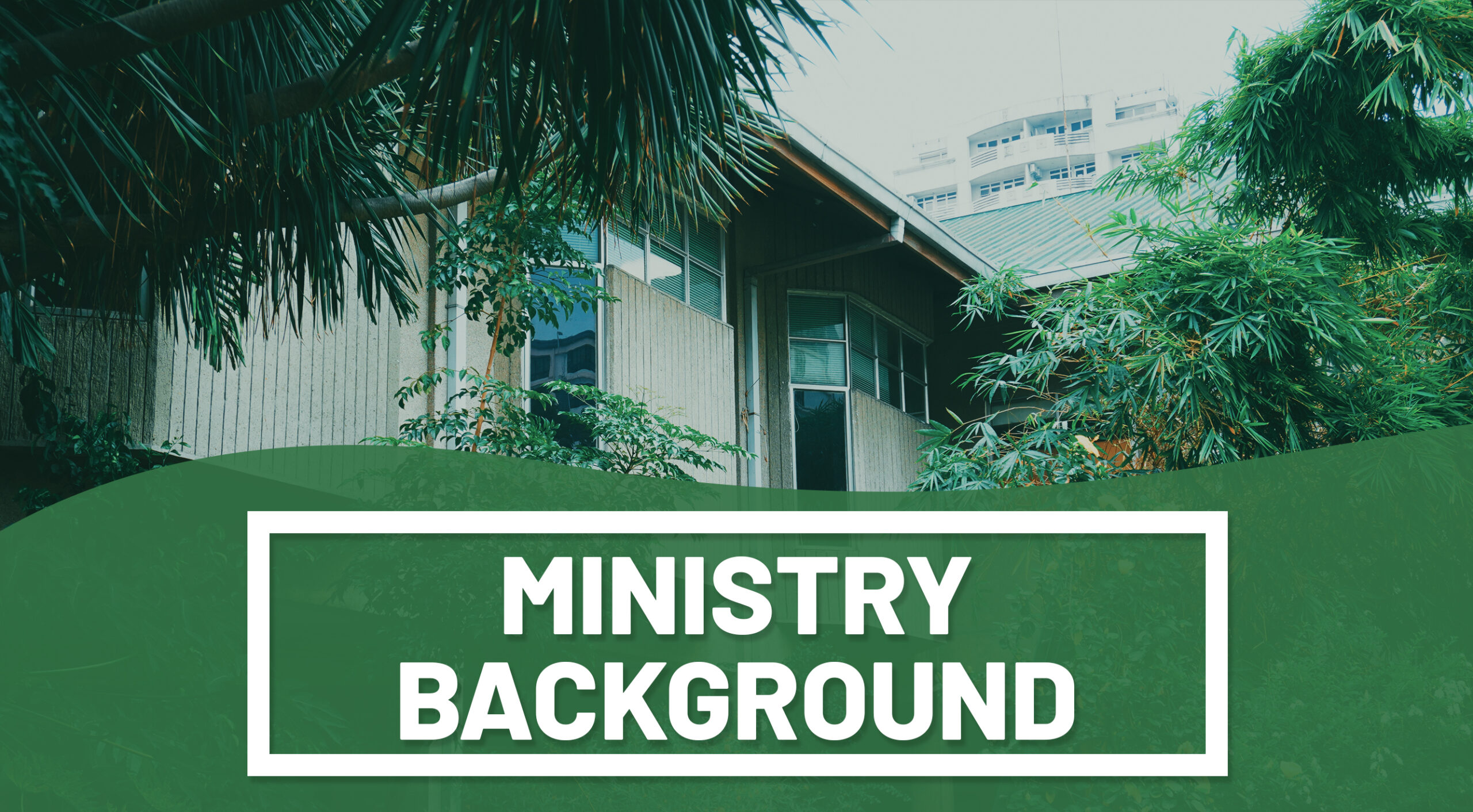
Asian Theological Seminary came into existence when, after planning and praying for almost 25 years, missionaries of the Far Eastern Gospel Crusade (now SEND International) finally realized their vision for a graduate-level training institution.
In 1969, the first evening classes were held, with 23 part-time students, at a student center on Lerma Street, Sampaloc, Manila. From such humble beginnings, ATS steadily grew in faculty size and student population, necessitating transfers to different locations within Quezon City. In 1980, under the presidency of Dr. Stewart De Boer, it finally settled down at its present location on Scout Madriñan.
As ATS grew, so did its support from the evangelical community. In 1975, the Conservative Baptist Mission and the Overseas Missionary Fellowship joined SEND International as co-sponsoring missions. ATS was then incorporated under a Board of Trustees that represented each sponsoring mission and several national churches.
With the arrival of Dr. William Dyrness in 1974 and Dr. Chester Wood in 1976, ATS gained a reputation for scholarship that attracted students not only from the Philippines but also from other Asian and Western countries. ATS offered its first Master of Theology (Th.M.) program in 1980, and its Extension Programs in 1983. Its second Th.M. was launched in 1986, this time in Communications.
The long search for an Asian president ended when Dr. Isabelo F. Magalit became president of ATS in 1989. The Christian Reformed World Mission became its fourth co-sponsoring mission, and an affiliate study center was formed: the ATS Center for Transformation Studies (ACTS). Though this Center is no longer functioning, it helped set the stage for the continuing emphasis at ATS on transformation.
ATS obtained accreditation from the Association for Theological Education in South East Asia (ATESEA), the Asia Theological Association (ATA), and the Commission on Higher Education (CHED).
The seminary currently offers seven graduate level programs of education with foci on Biblical Studies, Christian Education, Counseling, Intercultural and Urban Studies, Pastoral Studies, Theology and Transformational Urban Leadership. Students could take the Graduate Diploma, Master of Arts, or the Master of Divinity tracks.
With the appointment of a Chaplain and the establishment of Care Groups, more attention is given to spiritual formation. Field work is stressed, along with internship programs.
ATS also opened three centers to help equip not just the pastors but even Christian leaders. We had the Center for Biblical Stewardship (CBS), Center for Continuing Studies (CCS), and the Center for Transformation and Urban Studies Leadership (CTUL). ATS CBS offers an MBA in Biblical Stewardship and Christian Management, as well as certificate courses in Professional Christian Fundraising and in Managing Non-profit Organizations. These centers have now been merged into the Strategic Leader Development Center (SLDC).
ATS also continues to train pastors and workers who are not academically qualified for graduate-level seminary education. This is done through the ATS SLDC, which offers a Master of Ministries and various certificate courses: Biblical Interpretation, Biblical Preaching, Lay Counseling, Pastoral Ministry, and Transformational Urban Leadership.
In its 53-year history, ATS has grown into a major interdenominational seminary serving approximately 100 different churches and para-church organizations in the Philippines and throughout Asia—surely a testament to God’s power, faithfulness, and grace.